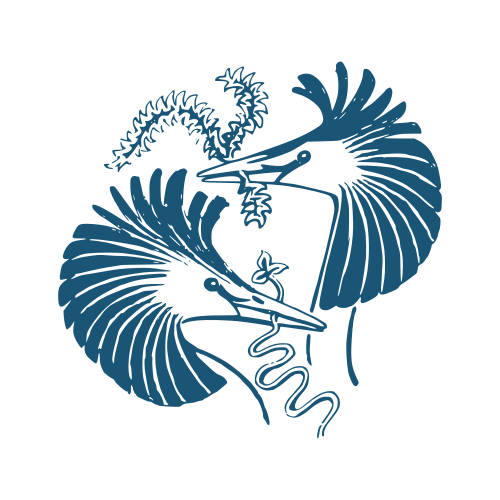ASAB Code of Conduct
As the organisational committee of the ASAB Winter Meeting 2025, it is our fundamental mission to host an event for animal behaviour professionals to meet, connect, develop new collaborations, learn from each other, share openly scientific ideas, and build knowledge. Bringing together people from different walks of life, we wish this conference to be held in a respectful, inclusive and welcoming atmosphere. Unfortunately, equality at scientific events remains an issue (1,2) and harassment at big events, including scientific congresses, is common (3). Therefore, we implement a strict Code of Conduct with the aim to create a safe space (4) where discrimination or harassment on the basis of your identity will not be tolerated. A code of Conduct outlining expected and unacceptable behaviour, including the consequences of non-compliance, will help create an environment where delegates can interact safely, with a free and open mind. All participants, including attendees, speakers, volunteers, staff and service providers are expected to abide by this Code of Conduct during core conference activities e (talks, poster sessions and breaks) as well as activities related to the conference (travel to and from conference, social events,excursions and shared accommodation) that are part of the ASAB Winter meeting 2025. Please contact the conference organisers or your session chair if you are experiencing behaviour that breaks our Code of Conduct. All reports will be kept confidential.
Expected Behaviour
In order to create a stimulating atmosphere, all attendees should keep in mind the following:
- Be respectful, supportive and considerate to everybody, including audience, presenters, staff at venue, and event organisers
- Listen when someone else tries to speak up, and be patient with people who are not very well-versed in English
- Be aware that power and status affect how others receive words and actions and how others express themselves (or feel limited in their expression)
- Do not assume anyone’s gender identity, sexual preference, survivor status, economic status, background, health status
- People can have different opinions, and disagreements happen; it is okay to walk away from a conversation that is not fruitful or is becoming tense
- Refer to people by their preferred gender pronouns (as indicated on name tags)
- Get consent before posting pictures of people on social media
- Respect presenters’ requests to refrain from sharing the contents of their presentations on social media or other public platforms. If presenters do not want their slides to be shared on media, we encourage them to include a logo indicating this in their presentation
- Respect the rules and policies of the event venue, hotels and any other meeting places.
- Respect presenters’ requests to refrain from disseminating the contents of their presentation on social media or other public platforms. Presenters wishing to opt-out of media dissemination are encouraged to indicate their wishes by including a logo in their presentation, as shown in the downloadable logo below:
Unacceptable Behaviour
We want to create an inclusive and safe environment for everyone, and in order to achieve this, we strongly expect all attendees to refrain from the following:
- Harassment, bullying, microaggressions, intimidation and/or insinuations that are hurtful e.g., demeaning behaviour or speech such as personal insults, sexist, racist, homophobic, transphobic, ageist or ableist language
- Inappropriate physical contact without consent and unwelcome sexual attention, including sexualized comments, jokes, advances or propositions
- Disruption during talks, poster sessions or discussions
- Verbal and/or written comments that reinforce social structures of domination related to gender, gender identity and expression, sexual orientation, disability, physical appearance, body size, race, age, religion, culture, political belief, marital or family status, social and economic class, educational level, immigration status
- Any form of physical or verbal abuse
- Advocating for or encouraging any of the above behaviour
How to report unacceptable behaviour?
If you experience or observe unacceptable behaviour, please speak up and report it. You can:
- Report to any member of the organising committee on-site
- Email any member of the organising committee If you see something that you feel is inappropriate and contrary to the spirit of the agreed-upon conduct, speak to the person affected and remind them there is a process they can access. All reports made will be kept 100% confidential and our team members will make all reasonable efforts to de-escalate situations.
Enforcement
Participants asked to stop any unacceptable behaviour are expected to follow the request immediately. All complaints will be reviewed and investigated and will result in a response that is deemed necessary and appropriate to the circumstances. The conference organisers retain the right to take any actions to keep the event welcoming for all participants. This includes warning the offender, expulsion from the conference, mediation with the complainant/victim of the complaint and the person alleged to have participated in harassing or discriminatory behaviour. To preserve both the safety and the confidentiality of the complainant/victim in the complaint, no specific action will be taken without consultation and approval.
References
- Walters, T. Gender equality in academic tourism, hospitality, leisure and events conferences. J. Policy Res. Tour. Leis. Events 10, 17–32 (2018).
- Tulloch, A. I. T. Improving sex and gender identity equity and inclusion at conservation and ecology conferences. Nat. Ecol. Evol. 4, 1311–1320 (2020).
- Committee on the Impacts of Sexual Harassment in Academia, Committee on Women in Science, Engineering, and Medicine, Policy and Global Affairs, & National Academies of Sciences, Engineering, and Medicine. Sexual Harassment of Women: Climate, Culture, and Consequences in Academic Sciences, Engineering, and Medicine. 24994 ( National Academies Press, 2018). <doi:10.17226/24994>.
- Favaro, B. et al. Your Science Conference Should Have a Code of Conduct. Front. Mar. Sci. 3, (2016).

